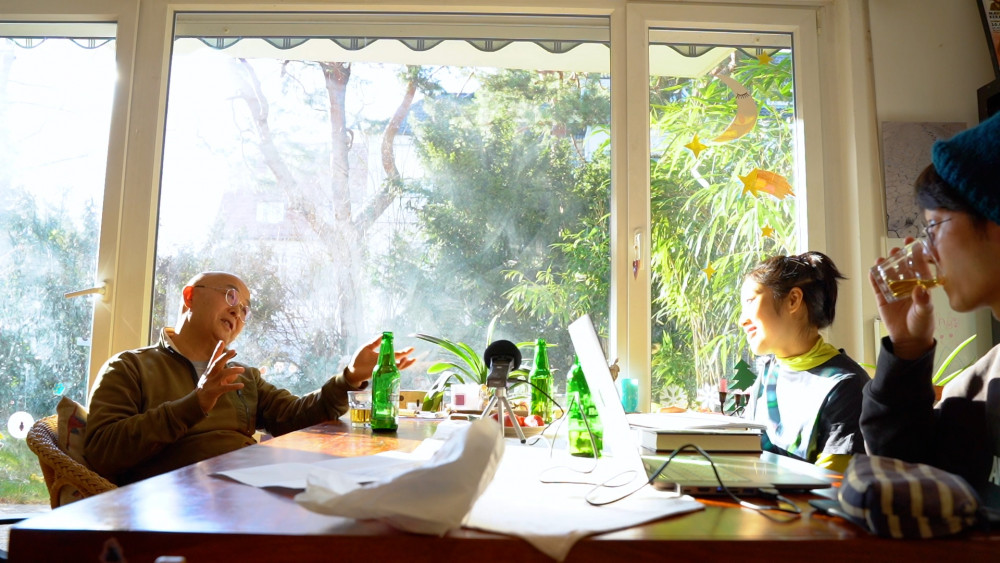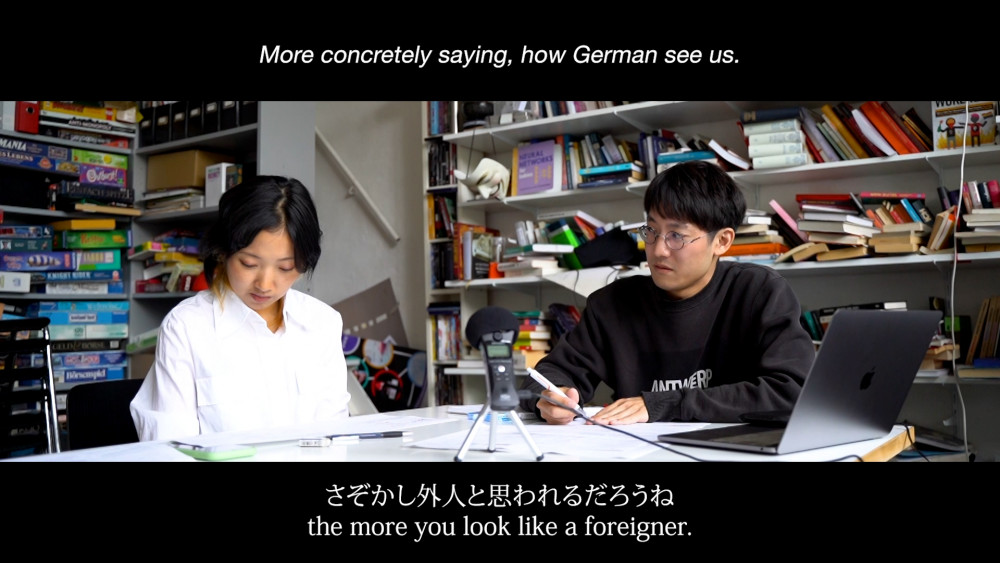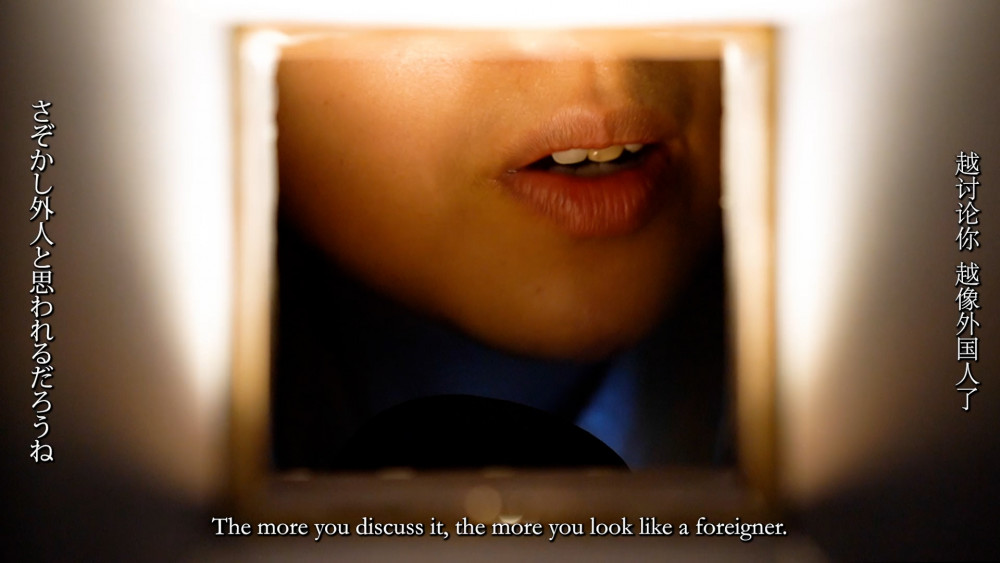hayate kobayashi
he / him
apparatus and its moving images

134万人の口へ / To all the 1,344,900 mouth,
Legacy — Winter 2021

Condensed Coffee
Designed Uncertainty (Course) — Winter 2020

dist(me, you)
Re-state, re-stage, re-enact (Short-term Project) — Winter 2021

Dividoorism
Convergence — Winter 2020

I miss you
Concretely Unimaginable — Winter 2020

road as a timeline
New Wilderness (Course) — Summer 2021

Time as a long bread
Time Apparatus (Course) — Winter 2021

つぎはぎの言語 / 拼凑语言 / Space-in-translation
Matters of thinking (Course) — Summer 2022
hayate kobayashi — つぎはぎの言語 / 拼凑语言 / Space-in-translation
Matters of thinking (Course) — Summer 2022
In my work “つぎはぎの言語 / 拼凑语言 / Space-in-translation,” I investigated to respond to my research question; “How could I, as one of the Asian-in-Germany immigrants, invent a language that translates such identity in a more spatial sense?”.
As a practical side, I made an essay film with poetry and a small wooden device that projects the reading mouth onto the wall. Based on the interview with Berlin-based Chinese poet Liao Yiwu, my Chinese friend Tsingyun and I tackled the translation process of the footage from Chinese to English and finalized it as one poem in English, Chinese and Japanese. The resulting poem has four chapters based on auto-translation; “Where are you from?”, “How do you define your own identity?”, “Which country do you think I am from?” and “The sensation of overdose.”
To interpret these processes broadly, I researched the fundamental concept of translation in translation studies. This concept is discussed by Walter Benjamin and Jacques Derrida, such as “Language as “das Mediale”” and “Language of things.” Thinking of translation as a “continuum of transformations” by Benjamin, I read the concept of “the translation zone” by Emily Apter and “composing poetry(Dichten)” by Daniel Heller-Roazen to think further. With those theoretical backgrounds, I write the example of “a play of language(Sprachspiel)” from Eugene Jolas and Yoko Tawada. These practical and theoretical processes combine to touch on the untranslatability of an identity as an Asian immigrant in Berlin, therefore creating a language.


